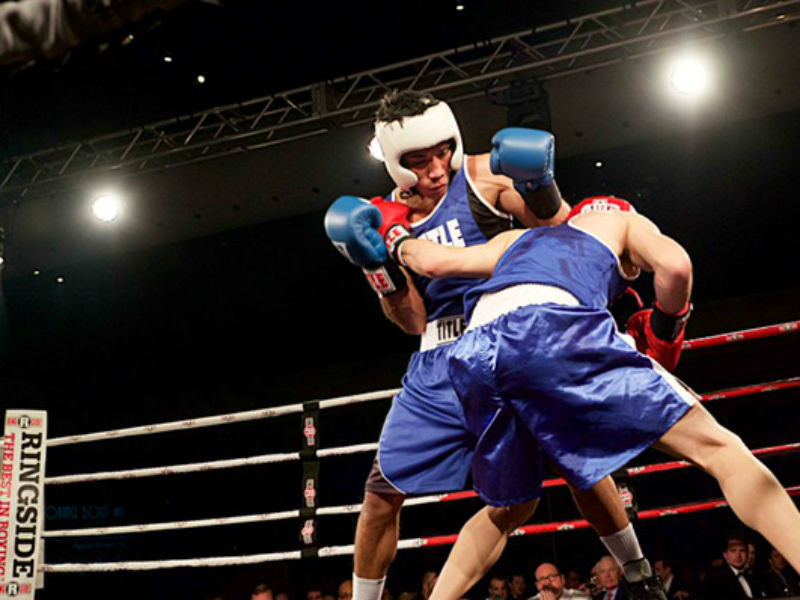Centuries ago the Potawatomi tribe made Milwaukee's Menomonee Valley its home.
In a week or two, the tribe's descendants will once again be digging into the soil to make a living. But the seeds they plant this month should come up much greener than any other crop the tribe planted in the past.
Potawatomi spokesman Ken Walsh tells us that the long-awaited $240 million expansion of the existing tribal casino will soon get underway. "It should start to look like a construction site this month," Walsh said of the site at the east end of the valley, on property just south of Canal Street.
The key to the start came when the state Supreme Court decided against a suit brought by Kenosha's Dairyland Greyhound Park in 2001 that would have limited tribal casino compacts to only bingo and raffles. The decision rejected the Dairyland's contention that a 1993 state constitutional amendment limiting gambling also applied to the casinos.
Walsh said the casino addition and six-story parking ramp should take about two years to complete. The work will mean hiring 500 construction workers and will add 1,000 employees to the facility when it is finished. It will nearly triple the floor space and double the number of slots, from about 1,600 to 3,100, while at least doubling the current 40 blackjack/roulette tables, Walsh said.
While all the plans are yet to be completed, he added that additional dining and entertainment options are also likely to be included."This will make Milwaukee even more attractive to Illinois tourists," he said. "Right now, we attract about a million people a year from Illinois. This will only further enhance that number and the Milwaukee area economy."
Walsh said while the tribe continues to oppose the proposed Menominee Nation casino being reviewed by the federal government for Dairyland, he said the possible competition is not going to inhibit the tribe's plans. He added he did not believe the Potawatomi expansion would have a chilling effect on the Kenosha plans.
The city has already approved the architectural plans and designs. But some at City Hall are certainly disappointed that the tribe could not be convinced to relocate the facility Downtown. Some had discussed the possibility of providing space near the Bradley Center or the emerging Park East area to the north of the Downtown.
"The idea of a casino Downtown had been talked about for some time now but, for all intents and purposes, it is no longer a possibility," he said. "There were community business leaders who thought it would be a good idea, but it never really got too far along. Some in the community thought it would be a good idea and create some synergies. But the major stumbling blocks to locating the casino Downtown was that the tribe has already invested over $120 million in the valley and there would be a need for new federal and state (site) approvals."
Another winner in the decision to expand the casino is the state. The tribe's agreement calls for it making government payments of 6 percent to 8 percent of its annual revenue, which should grow much larger as the facility begins to operate. Recent studies estimate that the casino's eventual annual revenue could nearly double -- to $570 million -- once the casino is fully functioning.
In a week or two, the tribe's descendants will once again be digging into the soil to make a living. But the seeds they plant this month should come up much greener than any other crop the tribe planted in the past.
Potawatomi spokesman Ken Walsh tells us that the long-awaited $240 million expansion of the existing tribal casino will soon get underway. "It should start to look like a construction site this month," Walsh said of the site at the east end of the valley, on property just south of Canal Street.
The key to the start came when the state Supreme Court decided against a suit brought by Kenosha's Dairyland Greyhound Park in 2001 that would have limited tribal casino compacts to only bingo and raffles. The decision rejected the Dairyland's contention that a 1993 state constitutional amendment limiting gambling also applied to the casinos.
Walsh said the casino addition and six-story parking ramp should take about two years to complete. The work will mean hiring 500 construction workers and will add 1,000 employees to the facility when it is finished. It will nearly triple the floor space and double the number of slots, from about 1,600 to 3,100, while at least doubling the current 40 blackjack/roulette tables, Walsh said.
While all the plans are yet to be completed, he added that additional dining and entertainment options are also likely to be included."This will make Milwaukee even more attractive to Illinois tourists," he said. "Right now, we attract about a million people a year from Illinois. This will only further enhance that number and the Milwaukee area economy."
Walsh said while the tribe continues to oppose the proposed Menominee Nation casino being reviewed by the federal government for Dairyland, he said the possible competition is not going to inhibit the tribe's plans. He added he did not believe the Potawatomi expansion would have a chilling effect on the Kenosha plans.
The city has already approved the architectural plans and designs. But some at City Hall are certainly disappointed that the tribe could not be convinced to relocate the facility Downtown. Some had discussed the possibility of providing space near the Bradley Center or the emerging Park East area to the north of the Downtown.
"The idea of a casino Downtown had been talked about for some time now but, for all intents and purposes, it is no longer a possibility," he said. "There were community business leaders who thought it would be a good idea, but it never really got too far along. Some in the community thought it would be a good idea and create some synergies. But the major stumbling blocks to locating the casino Downtown was that the tribe has already invested over $120 million in the valley and there would be a need for new federal and state (site) approvals."
Another winner in the decision to expand the casino is the state. The tribe's agreement calls for it making government payments of 6 percent to 8 percent of its annual revenue, which should grow much larger as the facility begins to operate. Recent studies estimate that the casino's eventual annual revenue could nearly double -- to $570 million -- once the casino is fully functioning.







